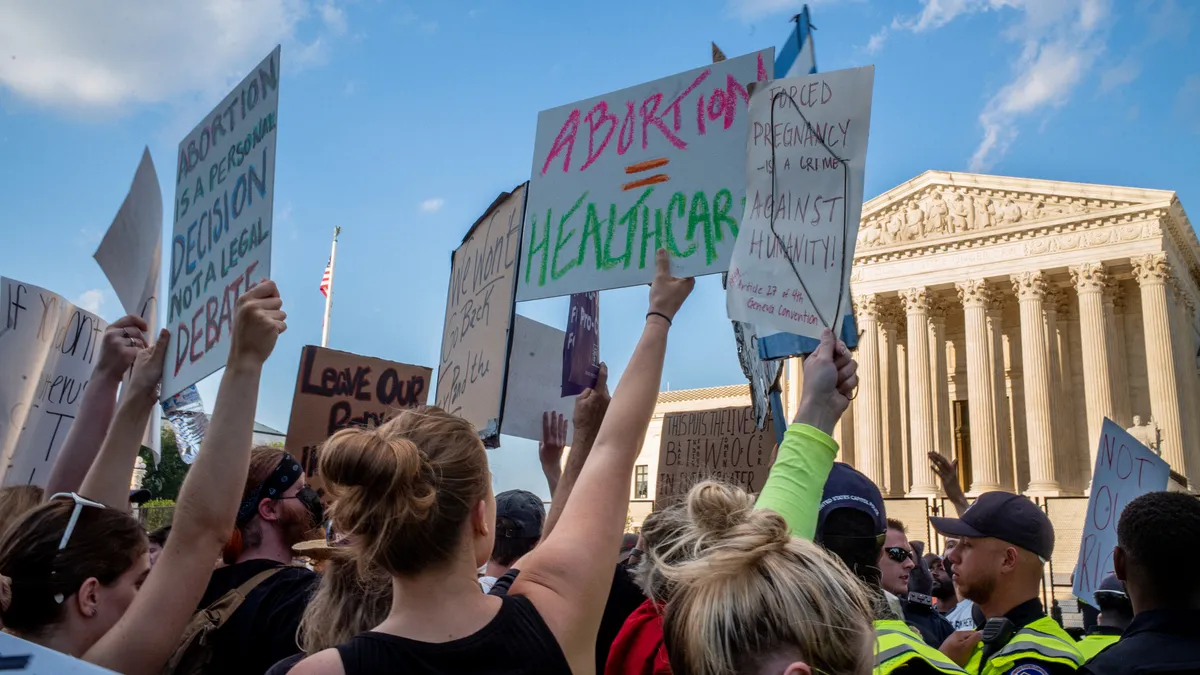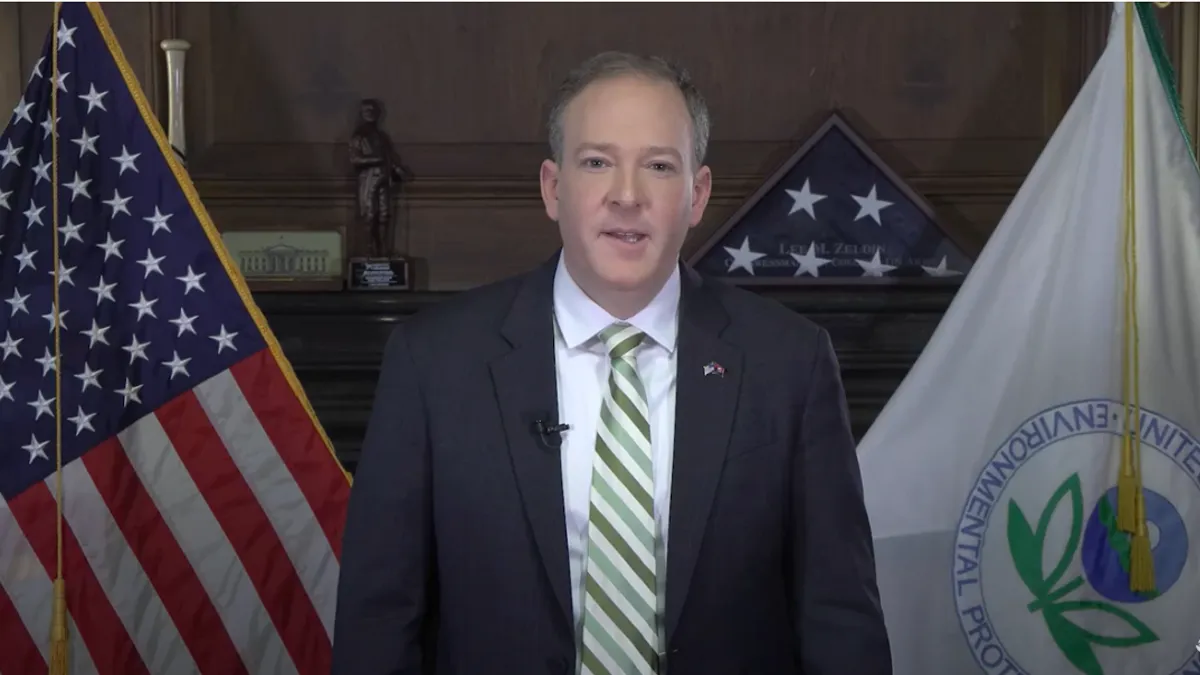In the weeks since the U.S. Supreme Court overturned Roe v. Wade, many cities and other jurisdictions have announced their intention to use local powers to protect access to abortion.
The conservative-controlled court, in its decision last month in Dobbs v Jackson Women’s Health Organization, gave “the people and their elected officials” the ability to regulate abortion – overturning a nearly 50-year constitutionally protected right and allowing states to impose bans on the medical procedure.
Following the decision, the Cincinnati City Council passed an ordinance allowing the city’s health plan to provide access to abortion care to city employees. The city will also cover travel costs to access medical care not provided within the state — which also can include medical care for LBGTQ individuals, said Mayor Aftab Pureval. The move comes as Cincinnati’s home state of Ohio has banned all abortions after about six weeks and some state lawmakers recently introduced legislation that would ban the procedure in all cases, except when the mother’s life is at risk. Lawmakers previously introduced legislation that would ban gender-affirming healthcare for transgender youths.
In another example, the San Diego City Council passed a resolution declaring itself a safe city for reproductive freedom.
Across the country, prosecutors also play a role in whether or not people seeking abortions are actually penalized for doing so. Ninety elected prosecutors from around the U.S., working through the Fair and Just Prosecution network, issued a joint statement saying: “we stand together in our firm belief that prosecutors have a responsibility to refrain from using limited criminal legal system resources to criminalize personal medical decisions.” Ann Davison, Seattle City Attorney and a signatory to the statement, said. “With limited resources, we need to focus on public safety.”
While these initiatives might offer some reassurance to those seeking or looking to provide abortions, their effectiveness remains a question. To start, reproductive care needs to be accessible, particularly to people with less income and other individuals who often struggle to access any kind of healthcare.
“I can’t not say it: there’s no substitute for having access to affordable abortion care in your own community,” said Heather Shumaker, director of state abortion access with the National Women’s Law Center. While these cities’ efforts are a start, and simply talking about abortion can help in “destigmatizing” it, they’re not a panacea for women in states that are hostile to abortion, she added.
It's also unclear how much protection cities can offer providers or patients, as state laws often limit what cities can do, said Elizabeth Nash, state policy analyst with Guttmacher Institute, a research organization focused on reproductive health and rights. “Typically, more conservative states have adopted either bans or a maze of restrictions that make it difficult for cities to protect, fund, or provide support for abortions,” she said.
Conversely, several cities have stated neither people who are pregnant nor their healthcare providers will be criminalized for providing or seeking abortion services, nor for self-managing abortion.
Brianne Nadeau, a Washington D.C. councilmember, proposed legislation that would prevent the District of Columbia from cooperating with out-of-state investigations seeking to impose criminal or civil liability on people who receive abortion or reproductive care in the District.
Still, these announcements can’t cover every situation. For instance, providers often must travel to clinics, sometimes coming from outside a state or region. Can they be prosecuted once they’re outside a sanctuary area? Shumaker asked. What happens if they travel to a state that criminalizes abortion, even if their travel is for personal reasons? And she further asked: can providers only visit Democrat-controlled states?
And while some prosecutors have said they won’t spend their resources prosecuting those seeking or providing abortions, those statements come with limits. “Here in Travis County, we will not criminalize personal health care decisions,” said José Garza, district attorney with the Texas county encompassing Austin, during a news conference, local news media reported.
However, it’s possible other individuals will be able to prosecute, Shumaker said. And when a prosecutor is no longer in office, their successors may take different approaches.
Moreover, some states that restrict abortions, such as Missouri, are proposing legislation that would criminalize those who help facilitate abortions in other states.
While it may seem like the Health Insurance Portability and Accountability Act, or HIPAA, might offer protection, that’s not yet clear. “It’s too early to tell how the courts will apply HIPAA, and whether it will help women because that law doesn’t confer a right to sue for violations,” said Erin Bernstein, attorney and founder of the law firm Bradley Bernstein Sands LLP.
Disseminating the right information
While cities may have limited options, they can take steps to help those seeking or providing abortions, Shumaker said. One is simply providing accurate information. That includes letting the community know where abortion and reproductive care is available — and as important, where it’s not.
To disseminate and provide access to information, cities and counties can leverage their public libraries, Bernstein said. This is key, as in many libraries, people can use the internet without being tracked, she added.
Healthcare providers themselves also need accurate information, Bernstein said. For instance, are county attorneys advising doctors on handling miscarriages, and if so, how? Are they telling the doctors in county hospitals it’s okay to treat them? If a doctor is accused of facilitating an abortion when a patient has a miscarriage, will the hospital support the doctor and provide legal counsel? “The county could say, ‘We want you to treat miscarriages. You’re an employee of [the] county and we’ll defend actions you take,’” she added.
In addition to prosecutors saying they won’t pursue abortion cases, police chiefs could also say they won’t devote officer time to investigating these, Bernstein said. “Police chiefs often set priorities according to what their communities want,” she added. “I’d love to see more sanctuary cities direct their police chiefs not to spend resources on this.”
This is an approach Cincinnati is considering. “We’re exploring ways to protect women versus using police resources investigating hospitals and possibly raiding them,” Pureval said.
These actions can help in making reproductive healthcare safer. However, “there isn’t a foul-proof plan of action that will avoid legal challenges,” Shumaker said. In addition, abortion care likely will remain out of reach for some people with lower incomes, irregular work schedules, and/or who lack reliable transportation or childcare, Shumaker said. “For many people, the right to an abortion hasn’t been the reality.”



















